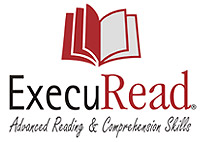News
As another school year opens, students at schools are again faced with the ‘Too much to read, too little time’ phenomenon. With new tests mandated by the 2002 No Child law and the long-term implications of SAT and ACT test scores, parents, teachers and students are searching for solutions to improve inadequate reading skills. “The bottom line is that declining reading skills, especially among the young, call for serious action,” according to Dr Bruce W Stewart, international reading skills coach for more than 28 years.
“The No Child law is having repercussions which were surely not envisaged by the legislators” says Stewart. “Test results are used to judge schools’ progress and, in some schools, influence teacher and administrator pay. As a result, there has been a spate of cheating by teachers -- Business Week (July 5, 2004) reports that some teachers are changing answers or filling in unanswered questions, coaching students during the No Child tests, handing out tests in advance and excluding weaker students’ scores from school returns.
“The school problem is just the tip of the ice-berg. Children today invariably reflect the attitudes of their parents, and will in turn influence the attitudes and priorities of their children. According to a survey of literary reading in America, the percentage of adult Americans reading literature has dropped over the past 20 years, from 56.9% in 1982 to 46.7% in 2002. It’s essentially cause-and-effect - because parents don’t read, there is no reading culture within the home, so children don’t read.”
“As more Americans lose this capability (to read literature), our nation becomes less informed, (less) active and (less) independent-minded. These are not qualities that a free, innovative or productive society can afford to lose.” – Dana Gioia, Chairman, National Endowment for the Arts.
“The decline in reading as a leisure activity occurred simultaneously with the emergence of television, computers and the diversity of electronic ‘gizmos’ as alternative entertainment forms” says Stewart. “For most people, reading requires too much effort and takes too much time. The problem is that the teaching of reading skills has remained the same for the past 100 years! While reading skills may be in crisis, the teaching of reading skills still appears to be on the back-burner. You simply cannot ask a teenager, accustomed to high-speed electronic input, to find any sort of reward or enjoyment in reading one word at a time. The result is boredom, lack of comprehension and ultimately an association between reading and failure.”
The percentage of young-adult American readers (age 18-24) has declined from the group most likely to read literature to the group least likely - from 59.8% in 1982 to 42.8% in 2002.
“The solution” says Stewart “is to elevate reading to a mental activity that is as stimulatory and rewarding as television, movies or computer-games. The ability to read the novel in LESS time than it takes to watch the movie. To read the course notes in LESS time than it takes listening to the teacher read the notes in class. Accelerated reading has been around for years - the economist John Stuart Mill could read as fast as he could turn the pages. Henry Louis Mencken commented that page-turning was the slowest part of his reading. And Presidents Roosevelt and Kennedy reputedly read a book a day while in the White House.
“In the ExecuRead for Students course, a 10-hour classroom-based program, student reading speeds are being increased an average 5 times, with some astounding academic results” -- “After increasing my reading speed, I won the British Literature Award for achieving the highest grade in my school class” says Jennifer Quan, a high school student in CA. And Dane Grismer, a high school student in NC was ranked #1 in his Senior High School Class & received over $71k in academic scholarships. The course is taught at a number of schools and colleges, including Darden Business School, Kenan-Flagler Business School, UNC Honors Program and South Western High School, including a number of private student-groups arranged by parents and teachers.
“The Principal of a High School in Illinois, faced the challenge, of declining reading skills, head-on. We ran the teaching staff through an intensive 10-hour ExecuRead for Teachers course. Then we gave every student in the school, from Freshmen to Seniors, 2 hours of intensive coaching in reading, comprehension, retention and recall skills development. With some slight adjustments to the daily school time-table, we introduced a 15-minute period of reading and concentration exercises, facilitated by the teachers, for the students. The impact on overall EOG and ACT test scores has yet to be formally released, but initial reports are encouraging” -- “Increased my son’s ACT score by 25% & won him a scholarship” says Lynn Chism, a parent in Illinois. “A marked improvement in study skills, recall & reading habits” says Shannon Bowman, an English Teacher in IL. And at a cost of about $15 per student, the EduRead Schools program could be an affordable option.”
For further information, contact Dr Bruce Stewart, Toll-free 1 888 4 ExecuRead (1 888 439 3287) or 917 826 9547.



 Subscribe to our News
Subscribe to our News


